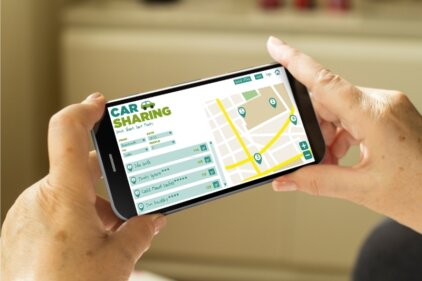Whether you are hiking in the wilderness, exploring a new city, or taking a road trip, being able to navigate effectively can save you from unnecessary stress, danger, and even potential disaster. In this guide, We will share with you the essential tools and techniques to help you find your way back when you find yourself lost.
Understanding Maps and Compasses
Maps and compasses are the quintessential tools for navigation, and understanding how to use them is a fundamental skill. Maps provide a visual representation of the terrain, allowing you to plan your route and make informed decisions. Familiarize yourself with the key elements of a map, such as the legend, scale, and contour lines. Learn how to read coordinates and use a compass to orient yourself. By mastering these skills, you will gain the confidence to navigate through unfamiliar territory with ease.
Using Landmarks to Find Your Way
In addition to maps and compasses, using landmarks is another effective way to find your way back when you’re lost. Landmarks can be natural features such as mountains, rivers, or distinctive trees, or man-made structures like buildings or monuments. Pay attention to your surroundings and make mental notes of prominent landmarks along your journey. These landmarks can serve as reference points to help you retrace your steps and navigate back to your starting point. By observing your surroundings and being mindful of the landmarks around you, you can significantly increase your chances of finding your way back safely.
Navigating with GPS Technology
In today’s digital age, GPS technology has revolutionized navigation. With a handheld GPS device or even a smartphone, you can pinpoint your exact location and track your movements in real-time. GPS navigation apps like Google Maps or offline navigation apps can be a lifesaver when you’re lost in an unfamiliar city or remote wilderness. However, it’s important to remember that technology can fail, batteries can die, or you may find yourself in an area with no signal. Therefore, always have a backup plan and carry a map and compass as a fail-safe measure.
Tips for Staying Safe While Lost
Finding yourself lost can be a daunting and potentially dangerous situation. However, by following a few simple tips, you can increase your chances of staying safe until help arrives or you find your way back. Firstly, try to remain calm and composed. Panic can cloud your judgment and hinder your decision-making abilities. Take a moment to assess your situation, conserve your energy, and formulate a plan. Secondly, prioritize your basic needs such as shelter, water, and food. Seek out natural sources of water, build a temporary shelter, and forage for edible plants if necessary. Lastly, avoid taking unnecessary risks or venturing further into unfamiliar territory. Stay put, make yourself visible, and wait for rescuers to find you.
How to Signal for Help in Emergency Situations
In dire situations, knowing how to signal for help can be a matter of life and death. There are various methods you can use to attract attention and alert potential rescuers to your presence. One of the most universally recognized distress signals is SOS, which consists of three short signals, followed by three long signals, and ending with three short signals again. You can use any means available to you, such as a whistle, mirror, flashlight, or even by creating a signal fire. It’s essential to practice these signaling techniques before venturing into the unknown, ensuring that you can execute them effectively when the need arises.
Basic Survival Skills for When You’re Lost
When you find yourself lost, having basic survival skills can make a significant difference in your chances of survival. These skills include knowing how to build a fire, purify water, find and prepare food, and create a shelter. Fire provides warmth, light, and a means to cook food, while purified water is essential for hydration. Learning to identify edible plants and how to catch small game can sustain you until help arrives or you find your way back. Additionally, constructing a shelter from natural materials can protect you from the elements and provide a sense of security.
Common Mistakes to Avoid When Lost
In the face of being lost, it’s easy to succumb to panic and make critical mistakes that can worsen your situation. One common mistake is wandering aimlessly without a plan. This can lead to exhaustion, dehydration, and further disorientation. Instead, stay put and make yourself visible to potential rescuers. Another mistake is not informing someone about your plans and estimated return time. Always let a trusted person know about your itinerary, so they can raise the alarm if you don’t return as planned. Additionally, resist the temptation to follow unreliable or unverified sources of guidance, such as animal trails or random paths. Stick to known routes or landmarks to increase your chances of a safe return.
Stories of People Who Got Lost and Found Their Way Back
To truly understand the importance of navigation skills and the impact they can have on your survival, let’s explore some inspiring stories of individuals who found themselves lost and managed to make it back to safety. These stories serve as a reminder that with the right mindset, skills, and a bit of luck, even the most dire situations can have a positive outcome. From hikers lost in the wilderness to sailors adrift at sea, these individuals faced unimaginable challenges but were able to find their way back home. Their stories underline the importance of preparedness, resourcefulness, and resilience in the face of adversity.
Conclusion: Be Prepared and Stay Calm
Getting lost is a situation that nobody wants to find themselves in, but it can happen to anyone. By honing your navigation skills, understanding how to use maps and compasses, and familiarizing yourself with landmarks and GPS technology, you can significantly increase your chances of finding your way back safely. Remember to stay calm, prioritize your basic needs, and know how to signal for help when necessary. Equip yourself with basic survival skills and avoid common mistakes that can worsen your situation. By being prepared and maintaining a calm mindset, you can navigate through the unexpected challenges of getting lost and ensure your safe return.





